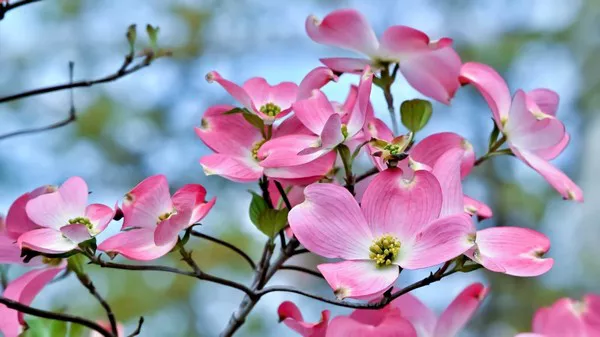Rosemary, a fragrant and versatile herb, has enchanted humans for centuries with its culinary and medicinal properties. Yet, beyond its practical applications, rosemary also holds a profound symbolic significance deeply rooted in history, culture, and mythology. In this article, we will delve into the rich tapestry of rosemary’s symbolism, exploring its diverse meanings.
The Botanical Beauty: A Brief Introduction
Before we embark on a journey into the world of symbolism, let’s acquaint ourselves with rosemary’s botanical attributes. Rosmarinus officinalis, commonly known as rosemary, is an evergreen shrub native to the Mediterranean region. It boasts slender, needle-like leaves and delicate blue-violet flowers, emitting a captivating fragrance that has earned it a special place in gardens and kitchens around the world.
1. Ancient Roots: Rosemary in Mythology and History
Rosemary derives its name from the Latin term “ros marinus,” which translates to “dew of the sea.” This nomenclature is a testament to its natural habitat along the Mediterranean coast, where it thrives in the salty sea breeze. In ancient Greek and Roman mythology, rosemary was associated with various deities and beliefs.
Memory and Remembrance: In ancient Greece, rosemary was linked to the goddess Aphrodite and the god Apollo, symbolizing love and memory. It was commonly used in funeral rituals to invoke remembrance of the departed, a tradition that endures in some cultures to this day.
Protection and Purification: The ancient Romans believed that rosemary possessed protective qualities. They would wear rosemary garlands during important events, such as weddings and graduations, to ward off evil spirits and bring good luck.
Healing and Well-being: In traditional medicine, rosemary was valued for its medicinal properties. It was used to treat a range of ailments, from headaches to digestive issues. This association with healing contributed to its reputation as a symbol of vitality and well-being.
2. The Language of Flowers: Rosemary’s Symbolism
In the Victorian era, when sentiment and symbolism were often expressed through flowers, rosemary took on additional layers of meaning:
Remembrance: Rosemary was regarded as a symbol of remembrance and fidelity. It was often included in bridal bouquets as a token of the bride’s commitment to her groom and her intention to keep his memory alive.
Loyalty and Friendship: Giving a sprig of rosemary to a friend symbolized loyalty and friendship. It conveyed a message of enduring affection and the desire for a lasting bond.
Good Luck and Protection: Rosemary also carried the promise of good luck and protection. Gifted during farewells or significant life transitions, it was believed to provide comfort and assurance.
3. Rosemary in Religion and Spiritual Practices
Rosemary’s symbolism extends beyond folklore and tradition; it has a presence in various religious and spiritual contexts:
Christianity: In Christian tradition, rosemary has been associated with the Virgin Mary. It is said that, during the Holy Family’s flight into Egypt, Mary spread her blue cloak over a rosemary bush, turning its white flowers blue. As a result, rosemary is sometimes called the “Rose of Mary” or the “Christmas Rose.” It symbolizes the purity and grace of the Virgin Mary.
Wicca and Paganism: In Wiccan and pagan practices, rosemary holds a special place. It is believed to possess protective and purifying qualities, making it a common ingredient in rituals, spells, and smudging ceremonies. Its aromatic smoke is thought to banish negative energy and enhance psychic abilities.
4. Culinary and Medicinal Significance
While rosemary’s symbolism is undeniably fascinating, it is important not to overlook its practical significance:
Culinary Delights: Rosemary’s fragrant leaves are a staple in Mediterranean cuisine, enhancing the flavors of roasted meats, stews, and bread. Its culinary use symbolizes the infusion of flavor and zest into everyday life.
Medicinal Marvel: Traditional herbal medicine has long recognized rosemary’s healing properties. It is believed to improve memory and concentration, relieve stress, and promote overall well-being. These attributes are a testament to its enduring symbolism of vitality and health.
5. Modern Interpretations: Rosemary in Contemporary Culture
In today’s world, rosemary’s symbolism continues to evolve and adapt:
Weddings and Special Occasions: Many modern couples incorporate rosemary into their wedding ceremonies and decorations as a symbol of love, fidelity, and remembrance. It serves as a nod to tradition while adding a personal touch to their celebrations.
Aromatherapy and Well-being: The use of rosemary in aromatherapy and holistic healing practices has surged in popularity. Its invigorating scent is believed to boost mood, enhance mental clarity, and alleviate stress, aligning with its historical symbolism of well-being.
Home and Garden: Rosemary’s versatility extends to home gardening, where it is cherished for its resilience and beauty. Planting rosemary in one’s garden can be a meaningful act, signifying the cultivation of enduring relationships and a connection to nature.
Conclusion
In conclusion, rosemary is a botanical gem with a rich tapestry of symbolism that spans across cultures, religions, and historical epochs. Its associations with memory, remembrance, love, protection, and well-being make it a symbol deeply ingrained in the human experience. Whether adorning a bridal bouquet, gracing a garden, or infusing a savory dish, rosemary continues to be a source of inspiration and connection in our lives. Its enduring appeal reminds us of the power of nature to inspire, heal, and enrich our existence. So, the next time you encounter a sprig of rosemary, take a moment to savor its symbolism and the centuries of history and meaning it carries with it.


